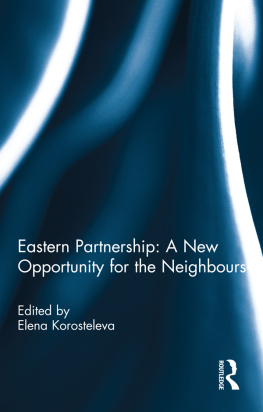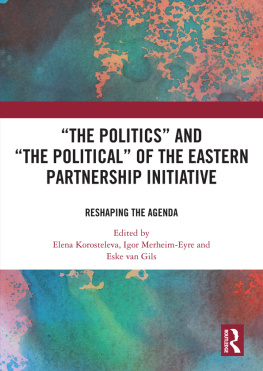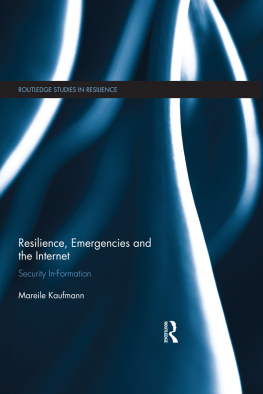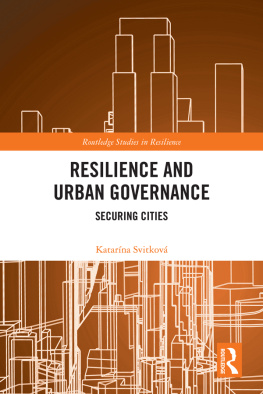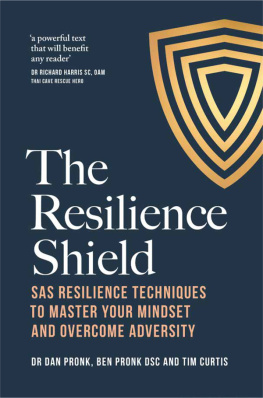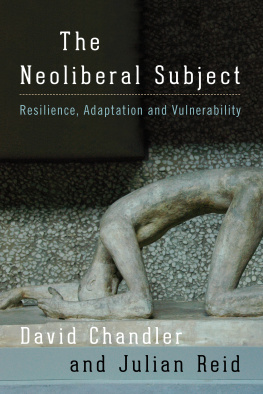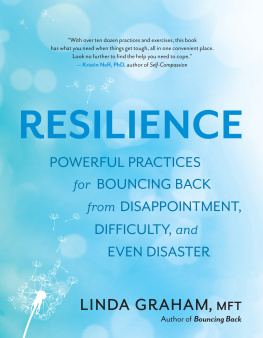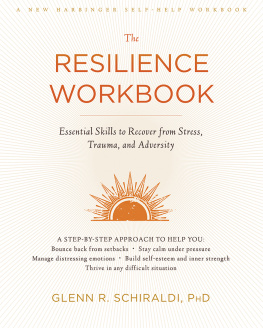Resilience in EU and International Institutions
This book explores the concept and practice of resilience that has generated much debate among both scholars and practitioners. The contributions propose a new understanding of resilience, both as a quality and a way of thinking, taking it to the level of the person and the local, to argue that a more sustainable way to govern the world today is bottom- up and inside- out.
While carrying a seemingly unifying message of self- reliance, adaptation and survival in the face of adversity, resilience curiously continues to appear as all things to all people, making it hard for the EU and international institutions to make full use of its arresting potential. Engendering resilience today, in the highly volatile and uncertain world hit by crises, pandemic and diminishing control, becomes a priority as never before. This book develops a more comprehensive view of resilience by looking at it both as a quality of the system and a way of thinking inherent to the local that cannot be engineered from the outside. It is argued in this volume that in some cases the level of the person, especially the persons sense of what constitutes a good life, may be the most appropriate focus for understanding change and strategic adaptation in response to it. This understanding widens the scope of discussion from what makes an entity, system or person more adaptable, to how one can best govern today to establish a stable equilibrium between the global and the local, the external and the internal, and become more responsive to the challenges and changes of todays highly uncertain world.
The chapters in this book were originally published in the journal Contemporary Security Policy.
Elena A. Korosteleva is Professor of International Politics and Jean Monnet Chair of European Politics at the School of Politics and International Relations, University of Kent, UK. Elena is Co-founder and Director of the Global Europe Centre, Canterbury, UK, and Principal Investigator for the Global Challenges Research Fund (GCRF) COMPASS project (ES/ P010849/1), focusing on resilience and governance in (Eastern) Europe and Central Asia. She has published widely in the journals Contemporary Security Policy, Journal of International Relations and Development, Cooperation and Conflict, Democratization and International Relations.
Trine Flockhart is Professor of International Relations and Co-director of the Centre for War Studies at the University of Southern Denmark, Odense, Denmark, and Founder and President of Women in International Security Denmark (WIISDK), Copenhagen, Denmark. Her research focuses on international order and transformational change, NATO and transatlantic relations. Her article The Coming Multi-Or der World published in Contemporary Security Policy (2016) was awarded the Bernard Brodie Prize that same year.
Resilience in EU and International Institutions
Redefining Local Ownership in a New Global Governance Agenda
Edited by
ElenaA.KorostelevaandTrineFlockhart
First published 2021
by Routledge
2 Park Square, Milton Park, Abingdon, Oxon OX14 4RN
and by Routledge
52 Vanderbilt Avenue, New York, NY 10017
Routledge is an imprint of the Taylor & Francis Group, an informa business
Chapters 12, 45, 810 and Conclusion 2021 Taylor & Francis
Introduction 2020 Elena A. Korosteleva and Trine Flockhart. Originally published as Open Access.
Chapter 3 2019 Elena A. Korosteleva. Originally published as Open Access.
Chapter 6 2019 Rosanne Anholt and Giulia Sinatti. Originally published as Open Access.
Chapter 7 2019 Irina Petrova and Laure Delcour. Originally published as Open Access.
With the exception of Introduction, Chapters 3, 6 and 7, no part of this book may be reprinted or reproduced or utilised in any form or by any electronic, mechanical, or other means, now known or hereafter invented, including photocopying and recording, or in any information storage or retrieval system, without permission in writing from the publishers. For details on the rights for Introduction, Chapters 3, 6 and 7, please see the chapters' Open Access footnotes.
Trademark notice: Product or corporate names may be trademarks or registered trademarks, and are used only for identification and explanation without intent to infringe.
British Library Cataloguing in Publication Data
A catalogue record for this book is available from the British Library
ISBN 13: 978-0-367-54391-4
Typeset in Minion Pro
by Newgen Publishing UK
Publisher's Note
The publisher accepts responsibility for any inconsistencies that may have arisen during the conversion of this book from journal articles to book chapters, namely the inclusion of journal terminology.
Disclaimer
Every effort has been made to contact copyright holders for their permission to reprint material in this book. The publishers would be grateful to hear from any copyright holder who is not here acknowledged and will undertake to rectify any errors or omissions in future editions of this book.
Contents
Elena A. Korosteleva and Trine Flockhart
Nathalie Tocci
David Chandler
Elena A. Korosteleva
Pol Bargues
Jonathan Joseph and Ana E. Juncos
Rosanne Anholt and Giulia Sinatti
Irina Petrova and Laure Delcour
Trine Flockhart
Zachary Paikin
Albena Azmanova
Pol Bargues
Guide
The following chapters were originally published in Contemporary Security Policy, volume 41, issue 2 (February 2020). When citing this material, please use the original page numbering for each article, as follows:
Introduction
Resilience in EU and international institutions: Redefining local ownership in a new global governance agenda
Elena A. Korosteleva and Trine Flockhart
Contemporary Security Policy, volume 41, issue 2 (February 2020), pp. 176194
Chapter 1
Resilience and the role of the European Union in the world
Nathalie Tocci
Contemporary Security Policy, volume 41, issue 2 (February 2020), pp. 176194
Chapter 2
Security through societal resilience: Contemporary challenges in the Anthropocene
David Chandler
Contemporary Security Policy, volume 41, issue 2 (February 2020), pp. 195214
Chapter 3
Reclaiming resilience back: A local turn in EU external governance
Elena A. Korosteleva
Contemporary Security Policy, volume 41, issue 2 (February 2020), pp. 241262
Chapter 4
Resilience is always more than our practices: Limits, critiques, and skepticism about international intervention
Pol Bargues
Contemporary Security Policy, volume 41, issue 2 (February 2020), pp. 263286
Chapter 5
A promise not fulfilled: The (non) implementation of the resilience turn in EU peacebuilding
Jonathan Joseph and Ana E. Juncos
Contemporary Security Policy, volume 41, issue 2 (February 2020), pp. 287310
Chapter 6
Under the guise of resilience: The EU approach to migration and forced displacement in Jordan and Lebanon


